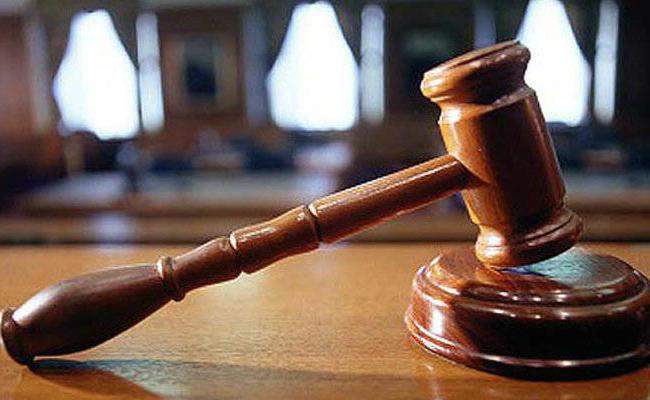Entrepreneurship in Russia - a fairly common phenomenon. Today there is a huge number of diverse enterprises, citizens become individual entrepreneurs or form legal entities. All this, of course, is not without control. Legislation establishes a number of requirements for individuals doing business. Norms provided and consequences of illegal business. Their appearance depends on the nature of the violations. Consider further what threatens illegal business. 
Sanctions
The first thing that may entail illegal business - administrative responsibility. The legislative system has a special Code that defines the types of misconduct and sanctions. Behind illegal entrepreneurship establishes different penalties as punishments. Their value depends on the nature of the violation. So, the implementation of entrepreneurial activity without registration entails the recovery of 500-2000 p.
Lack of license
For some types of activities, mandatory authorization is required. This document is issued by authorized regulatory authorities. Penalty for illegal entrepreneurship of individuals in this case will be 2-2.5 thousand rubles. Moreover, products, implements, raw materials can be confiscated. For officials for illegal entrepreneurship provides for a monetary penalty of 4 to 5 thousand rubles. An additional penalty may be the confiscation of goods, capital goods or materials. Similar sanctions are set for organizations. The difference is that the foreclosure for them is increased. The fine may amount to 40-50 thousand rubles.
Violation of requirements
Upon receipt of the license, the subject assumes the obligation to comply with the conditions established in it. Violation of these requirements is recognized as illegal business. The Code of Administrative Offenses in this case provides for monetary penalties in respect of:
- Citizens - 500-2000 p.
- Officials - 3-4 thousand rubles
- Organizations - 30-40 thousand rubles
If the business entity has committed a gross violation of the requirements, sanctions are tightened. For such illegal entrepreneurship, the Code of Administrative Offenses sets penalties for:
- Citizens - 4-8 thousand p.
- Employees - 5-10 thousand rubles
- Organizations - 100-200 tons
At the same time, the work of the enterprise or individual entrepreneur may be suspended for a period of up to three months. The specified sanctions are set int. 14.1 Administrative Code of the Russian Federation. 
Notes
The concept of "gross violation" used in Art. 14.1 Administrative Code of the Russian Federation, determined by the Government in relation to a particular licensed type of work. The Code provides for the possibility of exemption from punishment of economic entities. This is allowed when revealing the facts under Art. 14.1, as well as 15.3-15.6, 15.1, 15.25, 15.11, if they are declarants or information about them is present in a special declaration provided in the manner established by Federal Law No. 140. At the same time, the corresponding violations must be related to the acquisition (formation of sources for purchase), disposal, use of property by controlled foreign companies, transactions with foreign currency, transfer of funds to the payment system, information about which is contained in the specified document.
Art. 14.1 h. 1 Administrative Code: clarification
The object of the violation is relations arising in the conduct of business. The regulation of interactions that are established between entrepreneurs or are carried out with their participation, is based on civil law.At the same time, the fact that business is an area associated with constant risks is taken into account. Entrepreneurship is an independent activity focused on the systematic extraction of income from the use of property, the sale of products, the provision of services or the performance of work. Business entities must comply with the requirements established by law. The first one is state registration of an individual entrepreneur or organization. It is a specific procedure, the order of which is strictly regulated. 
Registration
State registration of an individual entrepreneur or organization - an act of an authorized executive body. It is carried out by entering into special registers information on the creation, liquidation, reorganization of business entities, acquisition of individual status, termination of work by citizens, as well as other information provided for in Federal Law No. 129. Registration was until recently in the competence of the Ministry of Duties and Taxes. The corresponding precept is present in the Government Decree of 2002. According to the Presidential Decree of 2004, after the approval and entry into force of the relevant Federal Law, the ministry was transformed into the Federal Tax Service. Thus, in order to avoid punishment for Art. 14.1 h. 1 Code of Administrative Offenses RF, the subject is obliged to contact the territorial division of the tax service. Requirements for registration of documentation used in registration, approved by the Government Decree of 2002
Part 3, Art. 14.1 Administrative Code: comment
As article 49 of the Civil Code indicates, for the production of certain types of work, the subject must obtain a special permit - a license. The need for this, however, does not cancel the obligation to go through state registration. The basic rules for licensing are established by Federal Law No. 128. The provisions of the Law are specified in other normative acts. For example, lists of types of services for which a license is needed are enshrined in the Federal Law "On Education". 
The objective part of violations
Litigation in cases of illegal business allows you to highlight the following aspects:
- Lack of documents attesting to registration.
- Work / release of products without a license, if required.
- Failure to comply with the conditions specified in the permit.
- Gross violation of license requirements.
Qualification specifics
When evaluating the actions of an entity not registered with the Federal Tax Service as an entrepreneur, it should be taken into account that they do not constitute a violation if it is proved that the number of products, their assortment, the amount of work performed, services provided and other circumstances do not indicate that the activity is aimed at the systematic generation of income. The relevant explanation is presented in the plenary decision of the Armed Forces of 2006. Evidence confirming the fact of doing business can be information received from persons who paid for services, products, work, receipts for accepting funds or extracts from the account of the subject who is charged with responsibility. At the same time, it should follow from the indicated documents and information that the amounts were received for the sale of goods, advertising, exhibiting samples, purchasing materials, concluding agreements, etc. When considering violations, it should also be taken into account that the presence of profit does not affect qualifications. This is due to the fact that the extraction of income acts as the goal of entrepreneurship, and not its mandatory result. 
Collection of articles
In some cases, when qualifying the actions of an economic entity, there are signs of violations provided for by other norms of the Code. In such situations, all articles that fall under the misconduct, in aggregate, apply.For example, if illegal business is accompanied by the storage, transportation, acquisition of unmarked products for their subsequent sale, additional sanctions will be imposed under Art. 15.12 (part 2). If, among other things, the entity sells goods whose sale is restricted or prohibited, article 14.2 of the Code also applies. If an economic entity conducting illegal business activities violates sanitary standards or provides products, services, work of inadequate quality, additional sanctions will be imposed on him under Art. 14.4. In case of non-compliance with the regulations governing the sale of certain types of products, article 14.15 applies additionally.
Licensing Specifics
When assessing the actions of an economic entity in the framework of the second part of Art. 14.1, it is necessary to take into account a number of nuances. First of all, you need to take into account that licensing is an event related to the issuance of an authorization document, re-issuance and cancellation, confirmation of its availability, suspension, renewal, termination of its validity or activity of a person who violates the established requirements. In addition, the number of procedures includes the control of authorized bodies over business entities. It involves checking compliance with the requirements of the license, maintaining registers, providing interested parties with the necessary information in the prescribed manner. The list of structures whose competence includes these activities is determined by the Government. It approves the Regulation on the licensing of certain types of work and services. When establishing in the actions of an economic entity signs of violations provided for in part two of Art. 14.1, it is necessary to be guided by the provisions of the Civil Code. In particular, Article 49 of the Code is of importance (paragraph 1, paragraph 3). As the norm indicates, the right to conduct activities, the implementation of which requires a license, arises at the time of issuing such a permit or at the time specified in it, and terminates at the end of the validity period, cancellation or suspension of the document, unless otherwise provided by law. 
Example
The Licensing Chamber applied to the arbitration court with a statement on bringing the port organization to administrative responsibility for the procurement, processing and sale of ferrous metal scrap without a license. The supervisory authority drew up the appropriate protocol during the audit. As the legislation indicates, the obligation to obtain a license for the procurement, collection, storage, processing and sale of scrap is provided for enterprises conducting such activities as the main one, which includes cutting, pressing, grinding, extraction, briquetting, cutting, remelting. The operations should also include the sale / transfer of raw materials free or paid. For the port, this activity was not the main one and was not carried out as such. The organization performed loading and unloading in accordance with the service agreement. The provision of sites for warehousing, storage of raw materials stipulated by the agreement meant the accumulation of the required consignment for subsequent loading onto the ship and transportation outside the country. Based on this, the location of scrap in the port should be considered as an element of the main activity for which a license was obtained.
Important point
When considering the actions of an economic entity in the framework of the third part of Art. 14.1 of the Code, it is necessary to take into account the provisions of Federal Law No. 128. In particular, we are talking about article 2 of a regulatory act. As its provisions indicate, entrepreneurship in violation of the requirements established by the license (permit) should be understood as the performance of certain works by a person who has the specified document, but does not fulfill the conditions established by the legislation governing this area. For the correct application of the norms of the Armed Forces in plenary Resolution No. 18 (dated October 24, 2008), he gave some clarifications.In particular, it was pointed out that in situations where administrative responsibility for illegal business, coma of the Code article considered above, is also provided for by its other provisions, the actions of an economic entity should be qualified according to a special norm. An example would be the provision of health services. Engaging in private pharmaceutical or medical practice by a person who has not received a license is punishable under Art. 6.2 of the Code (part one). In case of violation of the requirements of the permit in the framework of the production of certain types of work in the field of industrial safety of hazardous production facilities, it is subject to Article 9.1 (Part 1). 
Conclusion
It is possible to hold citizens, organizations or employees administratively liable for illegal business. The subjective side of the violation is expressed in the form of intentional guilt and negligence. According to experts, the legislation establishes well-founded and feasible requirements for persons wishing to conduct entrepreneurial activity. Regulatory acts in sufficient detail and clearly disclose all the features of certain procedures. Monitoring the implementation of legislative requirements is entrusted to executive structures. First of all, among them the Federal Tax Service. The tax service is authorized to carry out state registration of business entities, as well as all changes that occur with the company during its work. In addition, the competence of the Federal Tax Service includes on-site control. As part of such inspections, the tax office works closely with law enforcement agencies. For some entities, it may seem that the established penalties are not so large for illegal entrepreneurship. In Russia, meanwhile, criminal punishment is also provided for the systematic failure to comply with prescriptions. Particular attention is currently being paid to protecting consumer rights. Control authorities harshly suppress any actions that could cause harm to citizens. The developed standards, norms and rules are mandatory for all economic entities, especially those involved in the production of consumer goods. There is no doubt that following the letter of the law, strict compliance with the requirements ensures a good reputation for the company. A company or an entrepreneur who cares about the safety of its potential consumers seeks to improve, rather than worsen, the quality of its work, services, and consumer properties of products. This allows him not only to maintain a reputation, but also successfully compete in the market.